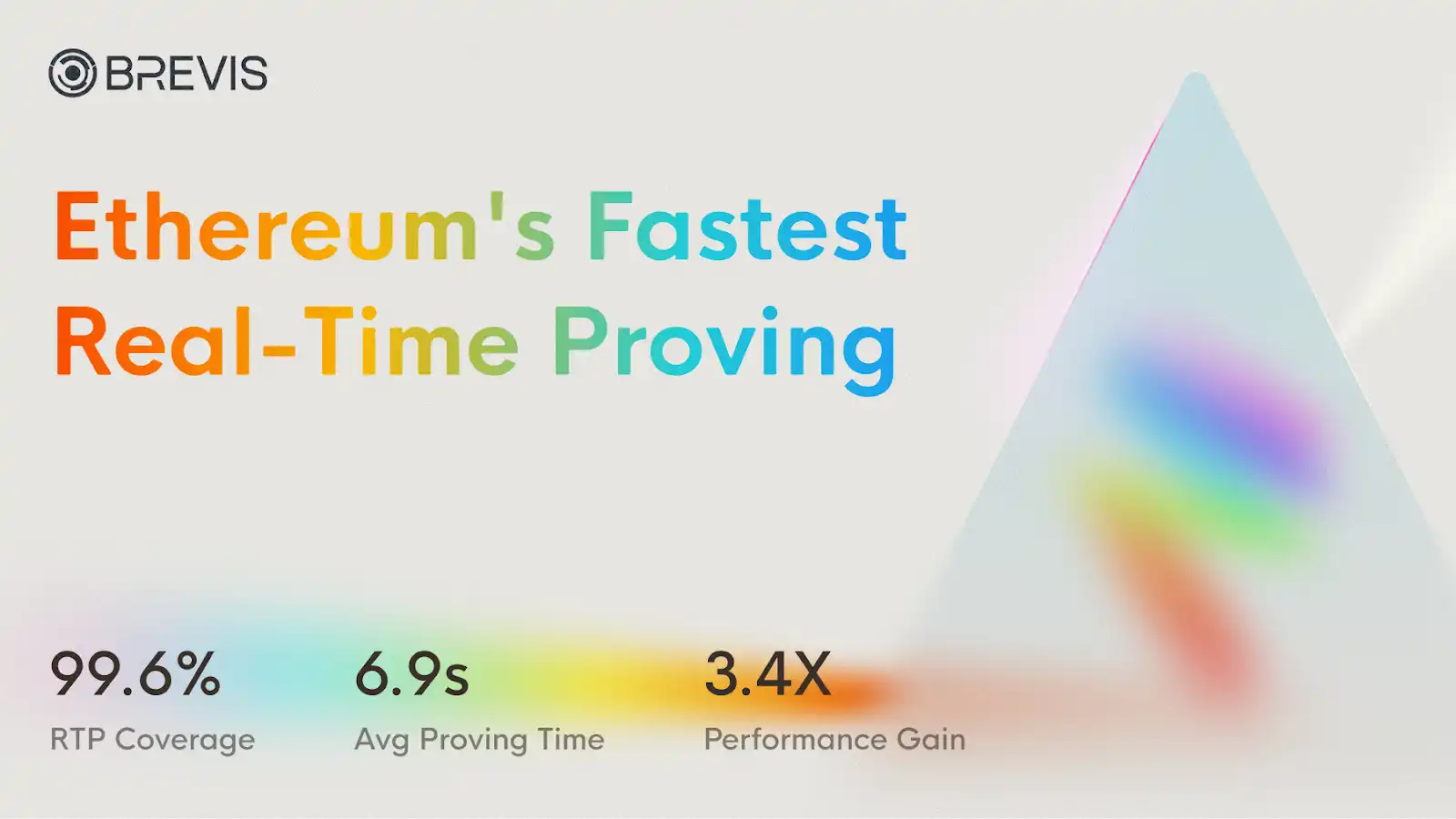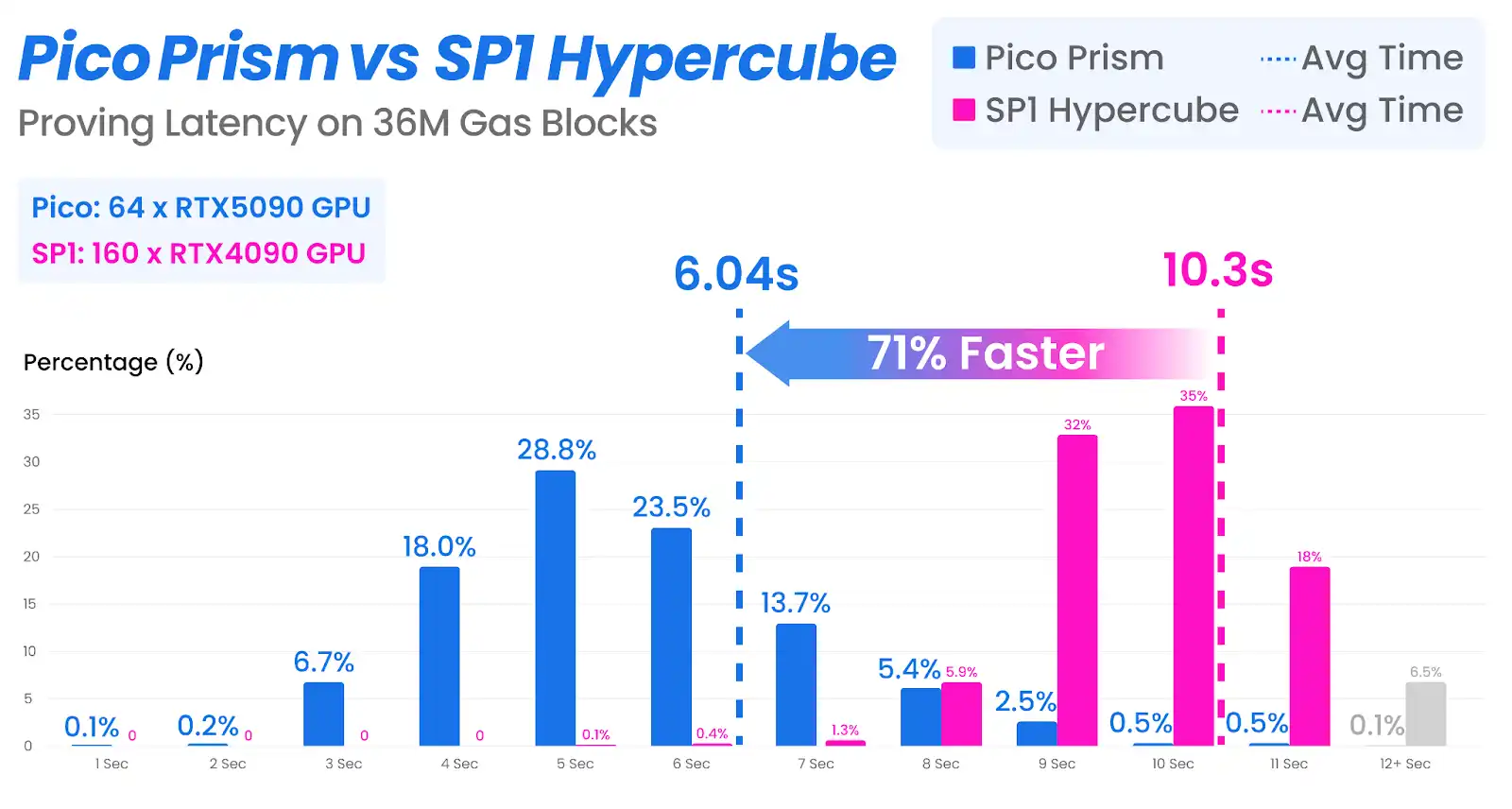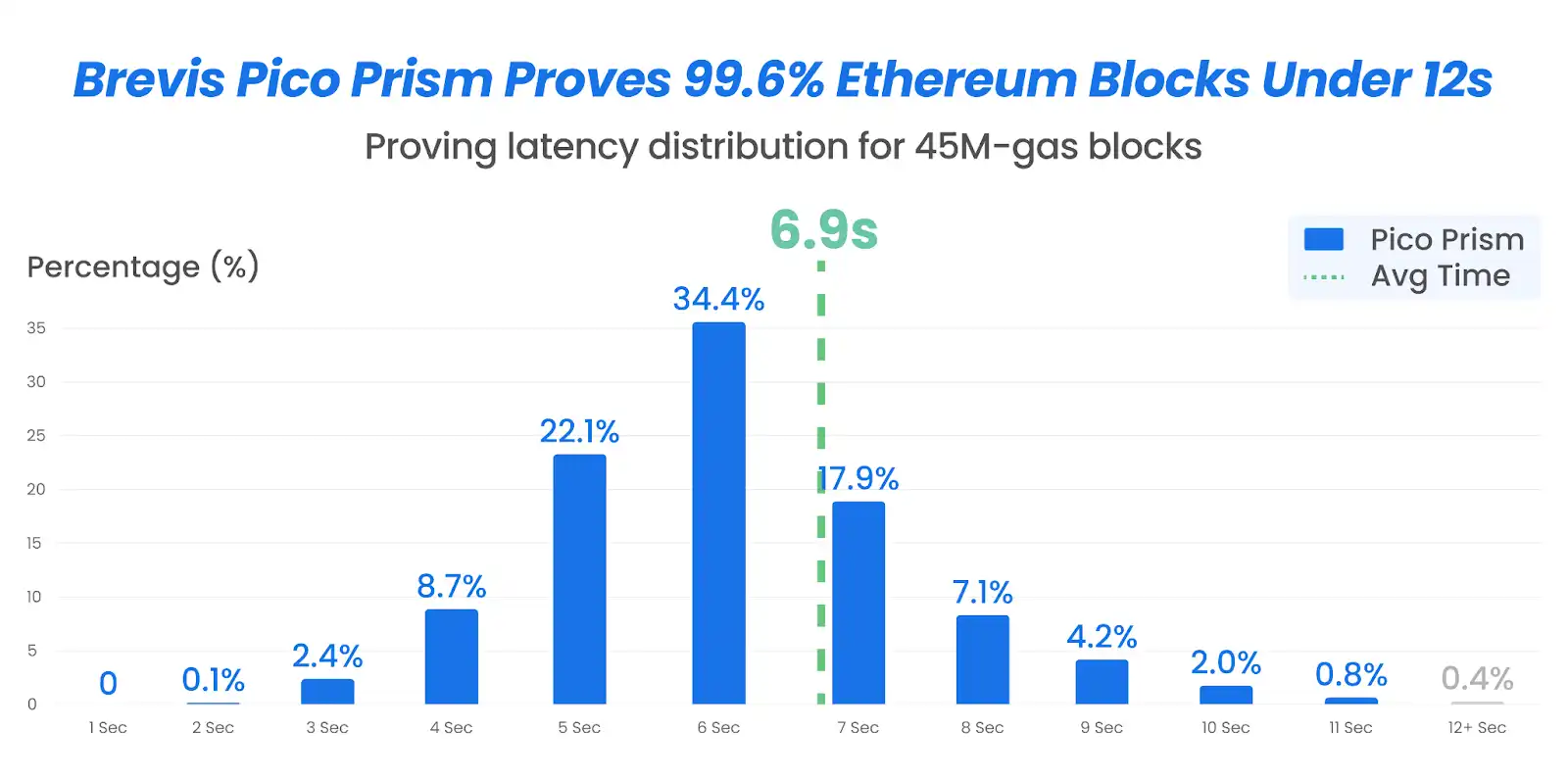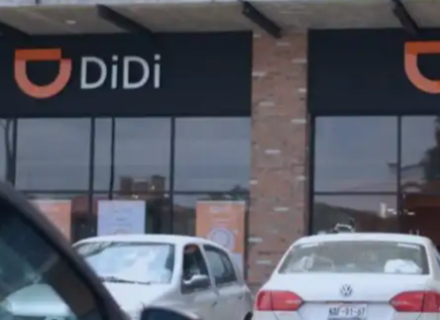Brevis has released the Pico Prism, bringing real-time Ethereum proof to consumer-grade hardware.
Pico Prism (zkVM) Achieves 3.4x Performance Improvement on RTX 5090 GPU
Source: Brevis
Leading zero-knowledge proof infrastructure provider Brevis has announced that its Pico Prism has achieved 99.6% real-time proof coverage of the current Ethereum mainnet block (45M Gas limit) on consumer-grade hardware in under 12 seconds and a 96.8% coverage rate within 10 seconds.

This breakthrough demonstrates that real-time proofs can be achieved using readily available RTX 5090 GPUs without the need for expensive data center equipment, making the technology economically viable for wider deployment while supporting Ethereum's decentralization goals.
Performance Surpasses Previous Solutions

When tested on a 36M Gas block, the Pico Prism significantly outperformed in all metrics compared to previous benchmarks:
· <10-second coverage: 98.9% vs. 40.9%
· Hardware cost: $128K vs. $256K (50% reduction)
· Average proof time: 6.04 seconds vs. 10.3 seconds (71% faster)
· GPU requirements: 64 RTX 5090 vs. 160 RTX 4090
· Performance efficiency (speed and cost combined): 3.4x improvement
For a 45M Gas Ethereum block, the Pico Prism achieved:
· 99.6% coverage (within 12 seconds)
· 96.8% coverage (within 10 seconds)
· Average proof time of 6.9 seconds

Michael, Co-founder and CEO of Brevis, said: "The data speaks for itself. We have built infrastructure capable of handling the current Ethereum block production using consumer-grade hardware accessible to a wide user base. This performance perfectly aligns with Ethereum's decentralization goals."
Technical Innovation: Distributed Architecture
The outstanding performance of Pico Prism is rooted in a complete architectural overhaul from a single-machine proof to a distributed multi-GPU cluster. The system leverages Pico's modular design, assigning compute-intensive tasks to GPU parallel processing, while the CPU handles task setup. Through highly parallelized pipelines to achieve maximum GPU utilization in the cluster, multi-node scaling almost linearly accelerates, thereby achieving excellent hardware efficiency on RTX 5090 consumer-grade hardware, making it more advantageous compared to solutions requiring expensive or dedicated data center equipment.
Advancing the Ethereum Scaling Vision
Traditional Ethereum transactions require over 800,000 globally distributed validators to independently recompute. Pico Prism achieves scale in verification through cryptographic proofs — a single prover generates a mathematical proof that the rest of the validators can verify in milliseconds.
In July 2025, the Ethereum Foundation outlined real-time proof goals in its roadmap: 99% coverage, completion within 10 seconds, hardware under $100k, power below 10kW. The achievement of Pico Prism on consumer hardware is a significant step towards this goal, with a hardware cost of $128k slightly exceeding $100k, but the widespread availability of consumer-grade GPUs significantly improves accessibility.
Reproducible Benchmarking
Brevis conducted benchmark tests on Pico Prism across 8 servers (each equipped with 8 RTX 5090 GPUs, totaling 64 GPUs) and compared it with previous state-of-the-art solutions. All tests are reproducible, and interested parties are welcome to validate the experimental results. Brevis is committed to driving open, reproducible benchmarking to support Ethereum's transparency and technical excellence.
Production-Oriented Infrastructure
Pico Prism is the distributed, multi-GPU evolution of Brevis Pico's zkVM architecture. Brevis has validated zero-knowledge infrastructure in a production environment through ZK Data Coprocessor technology, currently providing verifiable computation support to major DeFi protocols such as PancakeSwap, Usual, Frax, Linea, and MetaMask. In the coming months, Pico Prism plans to achieve 99% real-time proof on fewer than 16 RTX 5090 GPUs, further approaching the accessibility goal set by the Ethereum Foundation.
About Brevis
Brevis is an efficient, verifiable off-chain computation engine that provides unlimited computational capacity to existing smart contract blockchains. Through zero-knowledge proofs, Brevis offloads data-intensive, high-cost computation from the chain to a low-cost off-chain engine, enabling Web3 applications to seamlessly scale while maintaining L1 security and trust.
Disclaimer: The content of this article solely reflects the author's opinion and does not represent the platform in any capacity. This article is not intended to serve as a reference for making investment decisions.
You may also like
Conflicted Fed cuts rates but Bitcoin’s ‘fragile range’ pins BTC under $100K

Fed rate cut may pump stocks but Bitcoin options call sub-$100K in January

"Validator's Pendle" Pye raises $5 million, enabling SOL staking yields to be tokenized
There are truly no creative bottlenecks in the financialization of Web3.

DiDi has become a digital banking giant in Latin America
DiDi has successfully transformed into a digital banking giant in Latin America by addressing the lack of local financial infrastructure, building an independent payment and credit system, and achieving a leap from a ride-hailing platform to a financial powerhouse. Summary generated by Mars AI. This summary was produced by the Mars AI model, and its accuracy and completeness are still being iteratively improved.

